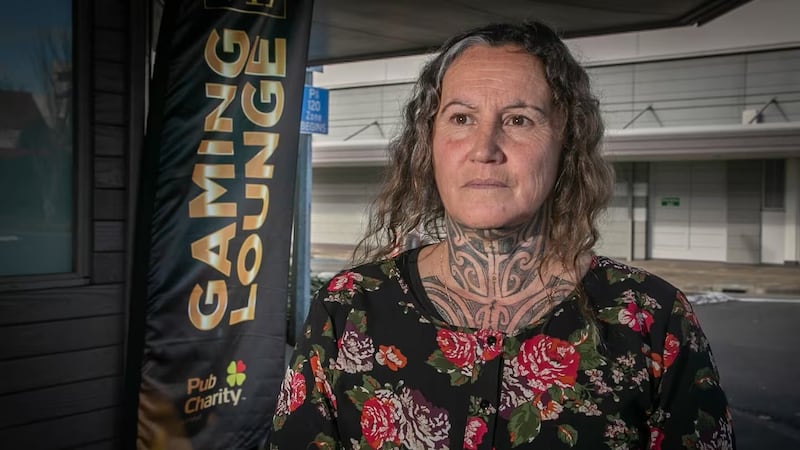A collective of Māori organisations working to tackle gambling harm has expressed “deep concern” about the government’s newly announced approach to regulating online casinos in Aotearoa set for introduction by early 2026.
Te Kāhui Mokoroa, the National Māori Gambling Harm Minimisation Collective formed earlier this year, wants the government to “prioritise the protection of Māori from gambling harm”.
The collective, which said it was important to “get the regulations right”, fears the government’s new regulatory scheme will increase the accessibility of casino gambling from the main cities directly into communities, homes and mobile devices.
It’s a development that Te Kāhui Mokoroa describes as “considerably alarming” given Māori are already five times more likely to develop gambling problems than other groups.
On Wednesday, Internal Affairs Minister Brooke van Velden said the government had agreed a high-level approach to regulating online casinos “designed to minimise harm, support tax collection, and provide consumer protections” but Te Kāhui Mokoroa isn’t convinced.
“There will be a licensing system for online casinos, where operators will need to comply with a set of criteria before they can offer services to New Zealanders. It will be illegal for unlicensed operators to offer services to New Zealanders,” van Velden said.
“Licensing is how we regulate most forms of gambling domestically. This is not intended to increase the amount of gambling New Zealanders do but to ensure operators meet requirements for consumer protection and harm minimisation, as well as paying tax.”
Te Kāhui Mokoroa has considerable misgivings, however.
“While we acknowledge the government’s attempt to regulate the online casino industry, we have serious reservations about the continued harm this will inflict on our whānau and communities, particularly our most vulnerable whanaunga,” Te Kāhui Mokoroa spokesperson Jessikha Leatham-Vlasic said Thursday in a release.

Despite its reservations, Te Kāhui Mokoroa said it was concerned about the two-year delay in implementing the new regulatory system.
“Although it is important to get the regulations right, any delay in introduction means more time for whānau to be exposed to online gambling harms, financial loss, and the development of gambling addictions,” it said.
Burden will fall heavily on Māori
Te Kāhui Mokoroa said that while the regulations were essential for minimising harm to whānau and protecting rangatahi and tamariki from being enticed to start gambling online, the costs and burden of gambling harm would fall heavily on whānau across the motu.
The collective said it recognised gambling harm affected all groups but pointed out that Māori populations were disproportionately affected.
“In the [Waiariki] – Bay of Plenty and Rotorua regions alone more than $190,000 per day is being spent on pokies and away from the kai cupboards of whānau,” Te Puke’s Poutiri Wellness chief executive Kirsty Maxwell-Crawford said.
“The impact of delaying online regulations leaves not only desperate whānau vulnerable but it also leaves the health sector ill-equipped to respond to the needs of today.”
The effects are apparent in other regions as well.
“In Hawke’s Bay, the impact of online gambling is causing significant harm to our whānau, hapū, and iwi. Online gambling harm is exacerbated due to 24-hour accessibility and minimal protective measures,” Te Rangihaeata Oranga general manager Cath Healey said.
“The broader financial and social impacts of online gambling harm need to be at the forefront of regulation. Strong mechanisms of active protection using the lens of health equity must be applied. The wellbeing of people needs to be prioritised over profit.”

Dallas Hibbs of Purapura Whetu in Christchurch said a “joined-up response” was needed.
“As front-line services, we are seeing the impact of online gambling fast growing across Te Waipounamu. As part of our response, Te Kāhui Mokoroa is designing a gambling-specific qualification for 2025, which will have a strong focus on online protective factors.
“It needs to be part of a joined-up response nationally, regionally and locally.”
Minister van Velden said a limited number of licences would be allocated by auction, lasting three years and conditional on meeting regulatory requirements.
The minimum age for online gambling will be 18 and operators will only be able to offer online casino games, not sports betting or lottery products.
“I expect the new regulatory system to be in place from early 2026 and the public will have the opportunity to provide feedback during the select committee process. Once established, the Department of Internal Affairs will be the regulator.”
Te Kāhui Mokoroa said the urgent need to address the impact of online casinos on rangatahi and whānau Māori could not be overstated.
It said it was committed to working with ministers and officials to support the well-being of all tāngata and added that stronger barriers were essential to protect consumers from the risks of gambling.
These included critical measures to help combat the addictive nature of gambling, such as a national exclusion register and setting mandatory universal pre-commitment and shut-down periods to prevent continuous and addictive gambling, it said.
Te Kāhui Mokoroa said it was also strongly opposed to advertising of online casinos, which it said was especially harmful to young people, aged 13-18, “52% of whom have gambled in the past 12 months”.
“Protecting our rangatahi and whānau Māori from the harmful effects of gambling should be our top priority,” it said.
“We urge the government to prioritise the protection of Māori from gambling harm, invest in front-line solutions and work collaboratively with organisations like Te Kāhui Mokoroa to develop more effective, culturally appropriate harm minimisation strategies.”




